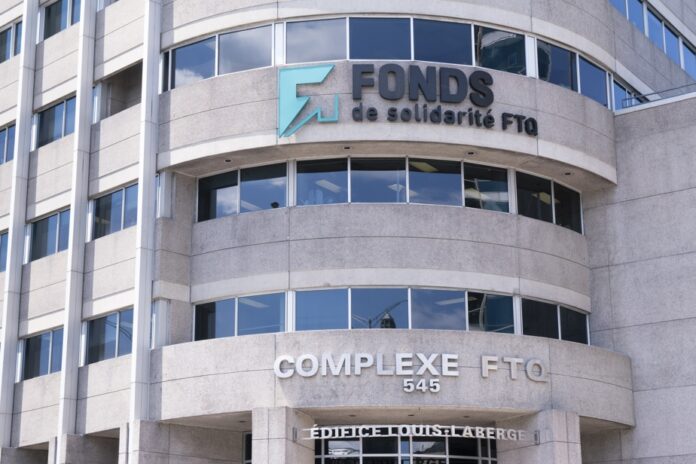(Montreal) Senior executives of the Fonds de solidarité FTQ were not entitled to a bonus because the financial target set by the board of directors was not achieved. “An exceptional amount”, however, partly made up for this shortfall.
President and CEO Janie Béïque was denied her bonus of up to 10% “in the middle of her pay grade,” which is more than $70,000.
On the other hand, Ms. Béïque was entitled to an “exceptional amount” of $68,896 during the fiscal year ended May 31, according to regulatory documents filed by the Fonds FTQ.
At the Fonds FTQ, we respond that the amount, although similar, has no connection with the bonus that was not granted. “It was to compensate for the drop in total compensation between 2022 and 2023,” says spokesperson Frédérique Lavoie-Gamache.
Ms. Béïque’s total compensation actually decreased by $155,000 from 2022 to 2023, to $1.19 million.
However, this decrease is attributable to a decrease of $156,000 in the value of the employer’s contribution to the pension plan. In general, the actuarial cost of an annuity promise in the future decreases when interest rates increase.
The similarity between the “exceptional amount” and the lost bonus “astonishes” professor and co-director of the Center for Economic Law Studies at Laval University Ivan Tchotourian. “It feels like they couldn’t have equity-based awards, but then we tried to make up for that,” the expert responds in an interview.
Although executive compensation includes a variable component, the exceptional amount gives the perception that the compensation cannot really vary downwards, Mr. Tchotourian points out.
“It feels like leaders never lose out in terms of compensation. Even if we do not achieve the results, we find a kind of strategy to finally arrive at a remuneration roughly equivalent to that of the year before. Remuneration does not have to be equivalent in itself, especially since there are variable criteria. »
The Board of Directors of the Solidarity Fund must however ensure that its leaders are retained in a sector where remuneration is high, underlines the Director General of the Institute for the Governance of Private and Public Organizations (IGOPP), François Dauphin , in an interview. He notes that the variable portion of compensation in the total envelope remains relatively small at the Solidarity Fund compared to what is observed in the financial industry.
In the document, the fund explains that the employer paid “a few people” amounts to “partially” compensate for a decrease in compensation between 2022 and 2023.
The “exceptional amount” also contains a cost-of-living compensation, calculated using the same formula as the fund’s unionized employees. Last year, this exceptional amount was $3,793 for Ms. Béïque.
The explanations in the document are not explicit enough to know what is related to inflation compensation and what would replace the lost premium, Mr. Tchotourian laments. ” It’s not clear. We can’t say enough. »
Mr. Dauphin also concedes that the Solidarity Fund documents could have been more transparent in this regard. “It would have been good to provide a little more explanation on this aspect because it casts doubt on the five leaders. We don’t know who touched what. We don’t have that specific explanation. »
Excluding new CFO Dino Rambidis, who took over in April 2023, the top five executives shared total compensation of $3.7 million.
In fiscal 2023, the Fonds FTQ returned 4% to its shareholders, according to its financial results published in June.















